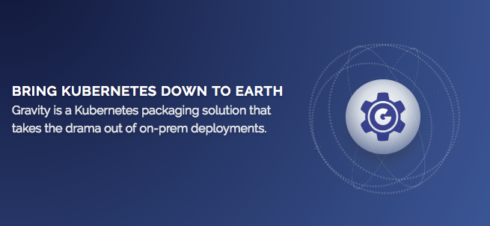
Gravity is an open-source upstream Kubernetes packaging solution designed to take “the drama out of on-prem deployments.” The project was created by the cloud-native security company Gravitational and open sourced in 2018.
According to the company, the project enables users to create images of Kubernetes clusters, including applications and dependencies, and then package it into a single file that can be installed in any restricted environment.
The primary use cases of the project include those deploying complex SaaS apps on prem, those managing many idempotent Kuberntes clusters, and environments where autonomous Kuberetes is required. The project has been used in financial institutions, government data centers and enterprises.
“There are plenty of Kubernetes distributions out there. Most of them aim to be flexible, general purpose platforms. Gravity has a more narrow focus on compliance and reducing the overhead of managing Kubernetes,” according to the project’s GitHub page.
Some of its key benefits include clusters are idempotent, always “wrapped” with a privileged access gateway, deployed world-wide and can be remotely managed, and only allow Kubernetes components that have been thoroughly tested by Gravitational for compatibility and stability, the company explained.
“The original use case for Gravity was to allow Kubernetes applications to be deployed into 3rd party environments, like on-premises datacenters. That’s why Gravity includes features like the built-in, graphical cluster installer, infrastructure validation and a built-in privileged access manager (Teleport) for providing remote support,” the project states. “These features also resonated with security-minded teams who need to run applications in environments where compliance matters. Gravity clusters are always identical and do not allow any configuration drift over time, which allows cluster designers (aka, Devops or SREs) to “publish” clusters that are approved for production and allow multiple teams within the organization to rapidly scale their Kubernetes adoption without having to become security and Kubernetes experts themselves.”








